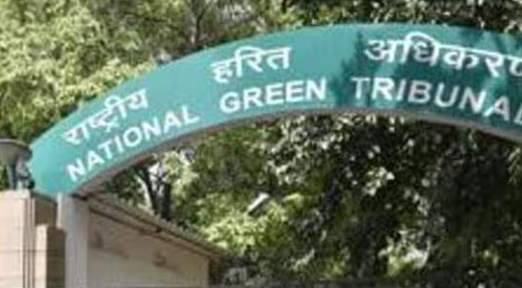
Whatsapp 93125-11015 For Details


Why in news?
The groundwater sources in nineteen districts of Andhra Pradesh have fluoride levels greater than 1.5 milligrammes per litre (mg/L),
National Green Tribunal (NGT) was told in a compliance report by the state government.
The March 29, 2024 tribunal order was uploaded to the NGT site on April 12, 2024.
The rural water supply and sanitation department of Andhra Pradesh is providing safe drinking water to the rural inhabitants affected by fluoride through single village / multivillage schemes, the compliance report stated.
Identification of groundwater sources
The department has identified groundwater sources with fluoride levels exceeding permissible limits and marked them with red paint, signifying they are not suitable for drinking.
It has also raised awareness among the local public, advising them to refrain from using this water for drinking purposes.
Arsenic concentration in drinking water
The Central Ground Water Authority has reported that groundwater sources in seven districts of Andhra Pradesh (Anantapur, East Godavari, Guntur, Krishna, Kurnool, Nellore and Prakasam) contain arsenic levels exceeding 0.01 mg/L.
This exceeds the current maximum permissible limit for arsenic in drinking water.
Groundwater samples containing arsenic levels approaching the permissible limit of 0.01 mg/L were collected from the National Hydrograph Network monitoring stations and exploratory wells / dug wells (located greater than 11 metres below ground level), primarily in alluvial soils, the Andhra Pradesh report said.
These samples were not obtained from drinking water sources within the villages.
Effect of elevated arsenic concentration
The elevated arsenic concentration exceeding permissible limits in the districts is sporadic and observed in only 23 water samples, the report said.
The reasons for the high arsenic content in these groundwater samples are not geogenic but mainly attributable to the application of phosphate fertilisers and pesticides, as well as poor soil drainage conditions.
Role of Administration
In all samples analysed from drinking water sources in rural habitations of Andhra Pradesh, the arsenic concentration remains within the permissible limit of 0.01 mg/L set by the Bureau of Indian Standards. This suggests that the situation is not alarming, the report stated.
Furthermore, the rural water supply and sanitation department of Andhra Pradesh is ensuring the provision of safe drinking water to all rural habitations affected by arsenic through single village schemes.
Additionally, all water supply sources in Andhra Pradesh undergo testing at the respective jurisdictional water quality monitoring laboratories once a year for chemical parameters and twice a year for bacteriological parameters (before and after the monsoon season), the report clarified.
Assam Government’s role
Assam authorities told to conform to SOP over use of formaldehyde to preserve fishes
The eastern bench of the NGT, April 10, 2024, directed the authorities in Assam to strictly adhere to the standard operating procedures (SOP) regarding the prevention of the use of formaldehyde for fish preservation in the state.
In its affidavit dated November 20, 2023, the Assam government mentioned the SOP for regulating the import, stocking and sale of fish transported from other self-sufficient states via road or river routes using formaldehyde to preserve fish for an extended period in the market.
A subsequent affidavit dated February 9, 2024 was filed by Assam, indicating that the draft SOP had been officially accepted and notified by the government, effective from January 20, 2024, to address the issue of formaldehyde usage.
This included the establishment of a state-level and district-level task forces. Following the SOP notification, the commissioner and secretary of the fishery department, Assam, had instructed all district fishery development officers across the state to promptly establish district-level task forces in accordance with the SOP.
These task forces are tasked with regulating the import, stocking, and sale of imported fish treated with formaldehyde.
The applicant also submitted a rejoinder affidavit on April 7, 2024, stating that 13 districts have already established their district-level task forces. Additionally, records of the formation of such task forces for the Karimganj district, along with details of the steps taken to implement the SOP, have been forwarded.
Sewage polluting Narmada river
The NGT, April 10, 2024 directed the member secretary of Gujarat Pollution Control Board to investigate a complaint regarding sewage drains in Bharuch polluting the Narmada river.
The authority has been instructed to promptly take appropriate remedial action in accordance with the law.
Conclusion
An original application was registered based on a letter petition submitted by president of Maa Revashree Charitable Trust, highlighting the concern that wastewater from 12 sewage drains is being discharged into Narmada river.
The prayer in the application was to expedite the pending sewage treatment plant project of Bharuch city on a fast-track basis.